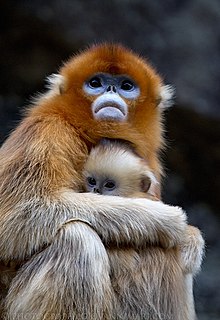Yes, natural selection - the essence of evolution, “selection” from random, rather than design.
Yes. The “Just So Story” is that humans started off coming down from the trees to scavenge the plains as the grasslands replaced the jungle. They evolved upright walking because the ones who could do that more easily could carry more food back to the safety of the trees. They began to scavenge the carcasses left behind by bigger predators. The extra protein was convenient for brain development, and took less time to chew. As human brains became bigger, they figured out how to use tools to kill their own game. Upright posture meant that they could run efficiently, thus they could harry big game to exhaustion. Learning to use fire (brains, again) meant they could break down meat with heat, so no need to select for raw meat consumption.
the key here is that humans could harass big animals to exhaustion because bipedal running was so efficient, and unlike their prey, they did not need to stop regularly to drink and graze. A horse or gazelle can easily outrun a human, but only for a few minutes before it stops to rest, the human catches up, and off the chase goes… until the gazelle is too exhausted.
Humans were selected for little hair and good sweat glands because that efficiently shed heat generated by running, in the tropical central African climate. They spread out across the tropics initially, the Mediterranean, the south coast of Asia, and into the Indonesian islands. No doubt they figured out to cever themselves with leaves or grass when it was a particularly frosty night, or just keep moving. But - the need to efficiently shed heat probably overbalanced the need to cover up.
By the time they moved into more chilly climates, they were already a top predator. IIRC, most sites in central Asia and Europe include a goodly assortment of bones from hunting. It would be surprising if, during that time, they had not figured out that the furry stuff on the outside of those animals was nice and warm. Plus, I recall reading about the plains in the middle east where they are littered with the remains of flint implements from up to 300,000 years ago - so they had the tools to skin animals as well as to chop liver. Presumably the process of making leather was a learning experience.
So yes, making clothes made selection for natural heat insulation much less significant. Environmental pressures are much less if you can modify your immediate environment. However… I have read that Inuit, for example, are somewhat suited for their situation - more subcutaneous fat as insulation. I don’t know about other ethnicities, but I am aware that I am not the only European that is not too far removed from a sheep (Scottish heritage?) in that I have a distinctive thick furry layer all over my body. Shaving my chest, for example, would be difficult because I wouldn’t know where to stop. I can grow a decent pelt on my face, but not the top of my head. So I suspect there is some residual evolutionary selection happening.
Oh, and you have to experience -40C (or -40F) to understand what real cold is. You can only do that without a jacket for a few minutes.


